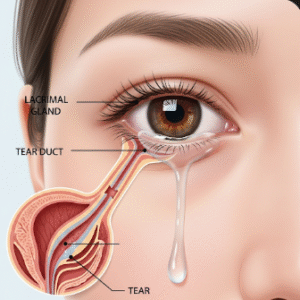Overview
Dyspareunia refers to persistent or recurrent pain during or after sexual intercourse. It is a relatively common condition among women, though men can also experience it in certain cases. In Korea, sexual health awareness has been increasing, and specialized gynecology, urology, and mental health clinics provide advanced diagnostic and treatment options for individuals suffering from painful intercourse. Both modern medicine and traditional Korean medicine approaches are available, ensuring patients receive comprehensive care.
What is Dyspareunia?
Dyspareunia is characterized by pain before, during, or after sexual intercourse. It may be superficial (occurring at the vaginal entrance) or deep (felt inside the pelvis). It can have physical, psychological, or a combination of causes. Unlike temporary discomfort, dyspareunia is considered a medical issue when pain is recurrent and significantly impacts sexual health, relationships, and quality of life.
Symptoms
- Pain during penetration (initial or deep)
- Burning, aching, or throbbing sensations after intercourse
- Vaginal dryness or tightness
- Involuntary muscle contractions of the pelvic floor (vaginismus)
- Pain lasting hours after intercourse
- Emotional distress, avoidance of intimacy, or relationship strain
Causes
Physical Causes:
- Vaginal dryness (often due to low estrogen, menopause, or certain medications)
- Infections (yeast infections, sexually transmitted infections, bacterial vaginosis)
- Endometriosis
- Pelvic inflammatory disease (PID)
- Uterine fibroids or ovarian cysts
- Episiotomy scars or vaginal tears after childbirth
- Dermatological conditions (lichen sclerosus, eczema, etc.)
Psychological Causes:
- Anxiety and depression
- History of sexual trauma
- Relationship conflicts
- Fear of pain or performance pressure
Risk Factors
- Postmenopausal women (due to hormonal decline)
- Women after childbirth (especially with vaginal tears or dryness)
- Patients with pelvic surgery history
- Individuals with chronic pelvic pain conditions
- Use of certain medications (antidepressants, antihistamines, hormonal drugs)
- High stress levels or poor mental health support
Complications
If left untreated, dyspareunia may cause:
- Chronic pain and worsening pelvic conditions
- Sexual avoidance or fear of intimacy
- Marital or relationship difficulties
- Emotional health issues (low self-esteem, depression, anxiety)
Prevention
- Use of lubricants or moisturizers for vaginal dryness
- Practicing safe sex to avoid infections
- Open communication with partner about pain or discomfort
- Pelvic floor exercises to strengthen vaginal muscles
- Regular gynecological checkups
- Mental health support to address stress or anxiety
Treatment Options in Korea
Diagnosis:
- Detailed medical and sexual history review
- Pelvic examination
- Laboratory tests to rule out infections
- Imaging (ultrasound or MRI) for structural causes
- Psychological assessment when required
Medical Treatments:
- Lubricants and moisturizers for vaginal dryness
- Hormone replacement therapy (HRT): For menopausal women with estrogen deficiency
- Antibiotics or antifungal medications for infections
- Pain management medications for chronic pelvic pain conditions
Surgical Options:
- Laparoscopic surgery for endometriosis or pelvic adhesions
- Removal of fibroids, ovarian cysts, or scar tissue causing pain
Rehabilitation & Supportive Care:
- Pelvic floor physical therapy for muscle-related pain
- Counseling or sex therapy for psychological contributors
- Acupuncture and herbal medicine, which are often used in Korean traditional medicine for pelvic health and relaxation
- Couples therapy to improve intimacy and communication













